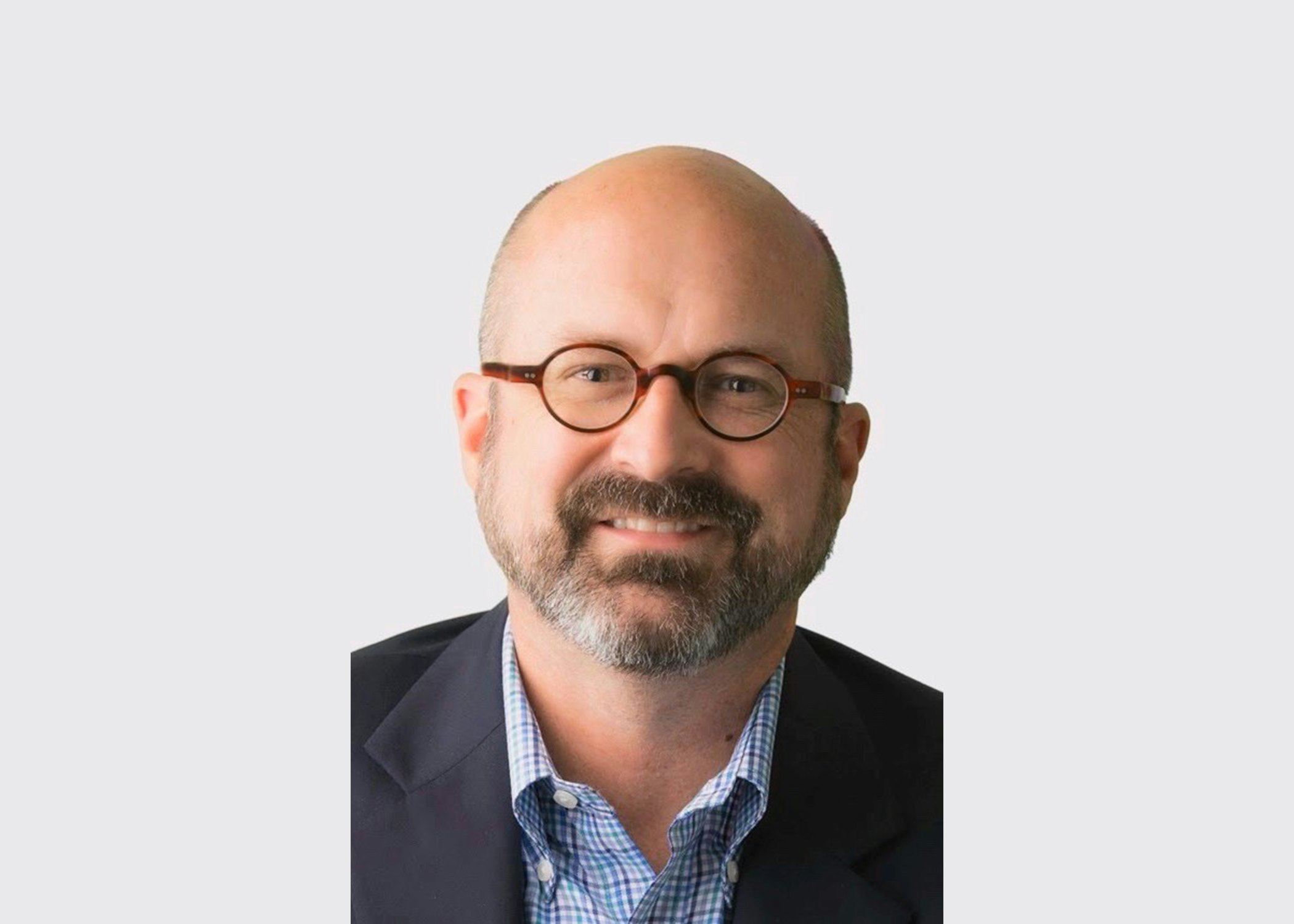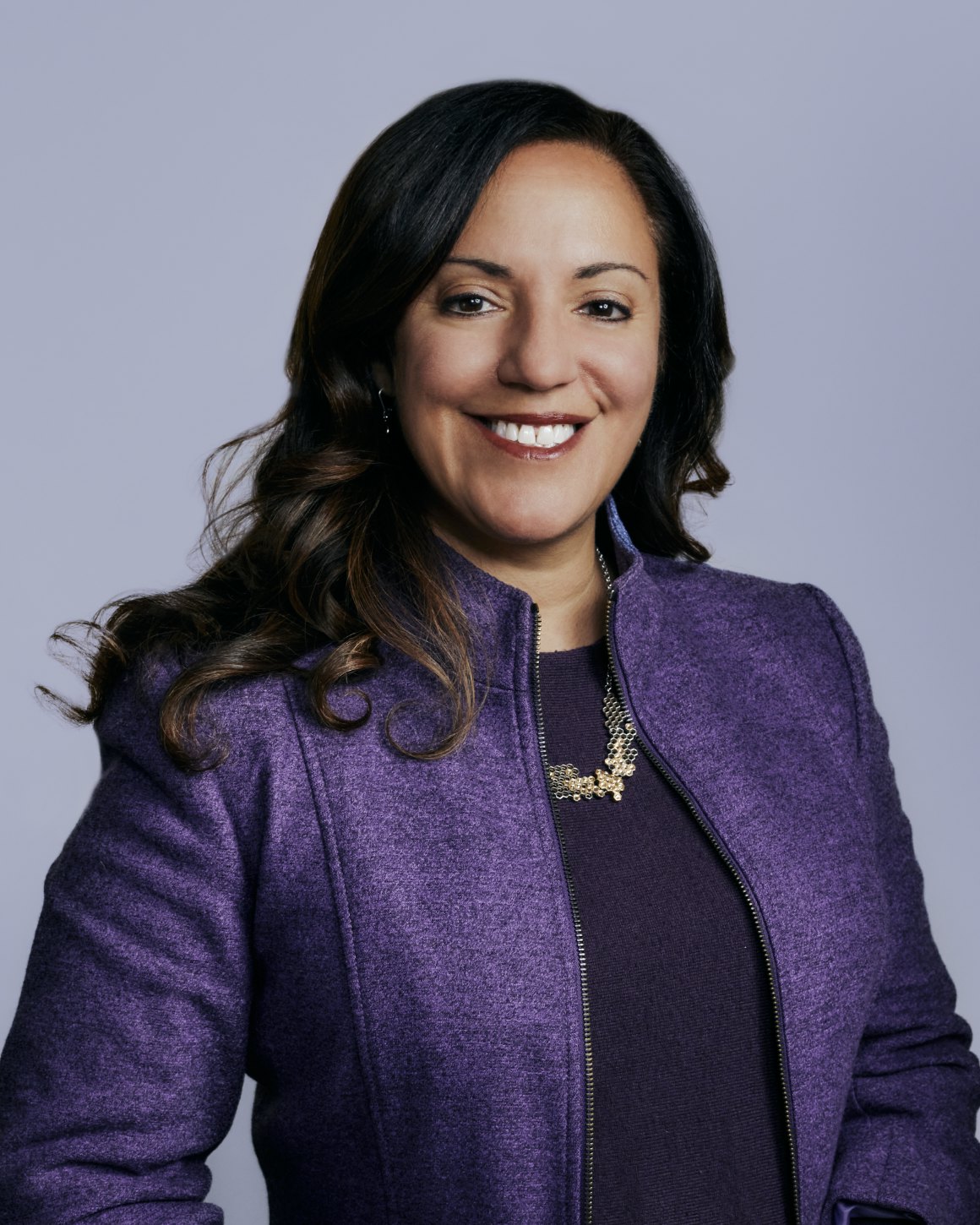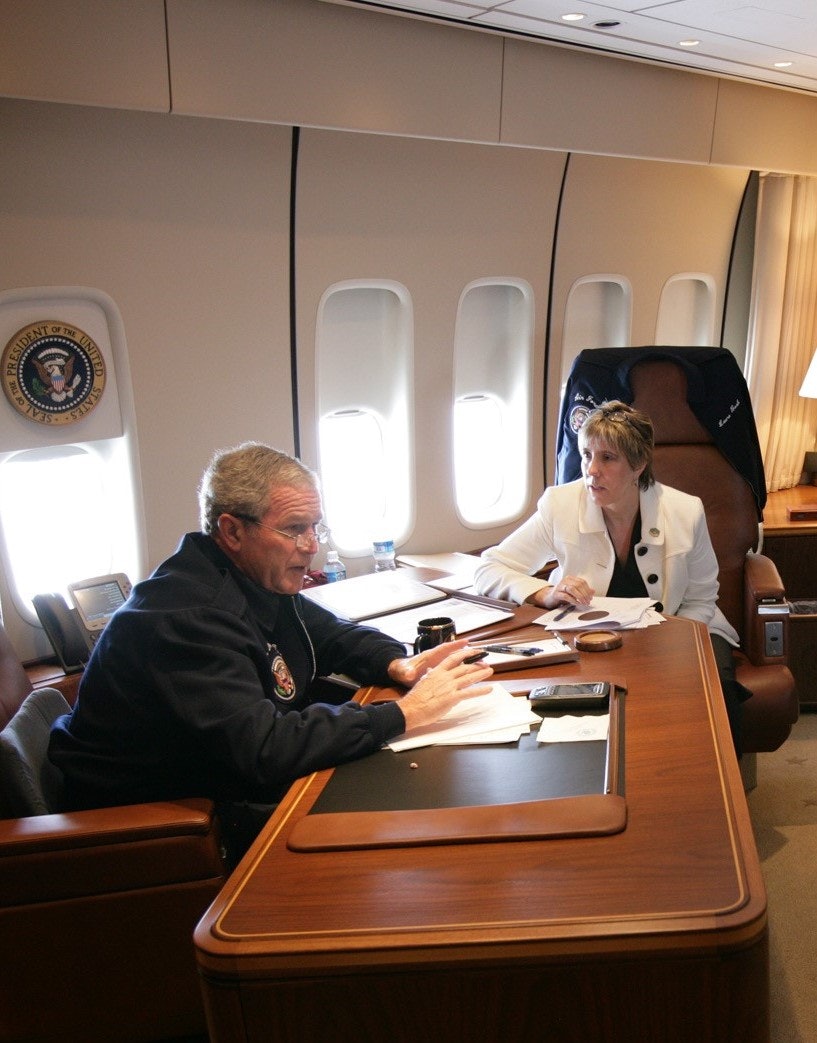Dana Perino remembers former White House Press Secretary Tony Snow – who passed away 10 years ago this month – and reflects on today's White House media environment, and passes along helpful work-life balance suggestions.
Dana Perino served in communications roles at the Department of Justice and the White House Council on Environmental Quality before becoming deputy White House press secretary in 2005. In September 2007 she became the first Republican woman to serve as White House Press Secretary.
Today at Fox News Channel she offers insightful political commentary, analysis and interviews on two daily shows (The Daily Briefing and The Five), co-hosts a popular weekly podcast with Chris Stirewalt (I’ll Tell You What), and is involved with multiple non-profits, including Mercy Ships and Companions4Heroes.
She has also written two New York Times bestsellers, maintains a national public speaking schedule – and of course loves to spend time with her husband, Peter, and Jasper, also known as “America’s Dog,” the subject of her second bestseller.
Q: It’s hard to believe it’s been 10 years since former White House Press Secretary Tony Snow passed away. As the person who succeeded him, what were his strengths as press secretary and what is your favorite memory or story about Tony?
It was 6 a.m. on Saturday, July 12, 2008 when Ed Henry (then with CNN) called me on my BlackBerry. He said, “I’m so sorry, but could I get a comment?” Though he’d woken me from a dead sleep – we’d just returned from Japan the night before – I knew that Tony had died. I was awake enough to know I didn’t want Ed to be able to report that CNN had broken the news to the White House. I said, “Let me call you back,” knowing that wasn’t quotable.
I hung up and scrolled through my phone. Sure enough, Jill Snow had sent an email around 3:50 a.m. with the news. I took a moment to pray and then called Josh Bolten, ensuring the president would be informed before I responded to CNN. The work that followed was all consuming, and it wasn’t until after the funeral that I had time to really cry and to feel all the emotions.
Tony was brilliant at the podium, with an ability to chastise reporters in a way that made them feel complimented. His knowledge was deep and broad. I remember asking him, “How do you know the difference between an F15 and an F16?” It seemed the guys absorbed this stuff by osmosis and I constantly struggled to figure it out.
I remember he never complained about his cancer treatments, though it clearly took a lot out of him. I remember watching him eat a stack of pancakes from the Mess, with sausage and bacon stuffed in between and lots of butter and syrup on top. He needed to keep his weight up while I was trying to keep mine down.
My favorite memory was on his last day when he came into my office and asked me to stand. He put his hands on my shoulders and shook me a little, “You’re better at this than you think you are!” I couldn’t take the compliment or the encouragement. I was terrified of trying to fill his shoes. It wasn’t until a couple of weeks later when, surrounded by the best press team the White House has ever seen (and that’s the truth), I realized what he meant. I didn’t have to try to be like him; I could just be myself. What a gift he gave me.
The good news is that on the 10th anniversary of his passing, I wrote about Tony and his children reached out to me with thanks. They told me hearing kind words about their dad helps. I am happy to report that each of them is well on their way to a successful, fulfilling life. Tony and Jill gave them a wonderful start. It was an honor to know him.
Q: Has the job of press secretary changed as much as it seems? How would you approach the role today?
I believe the core principles of the job have not changed: honor, respect, truth, integrity. The job still requires the press secretary to be informed, trusted and accessible. One thing that has changed is social media; for example, in January 2009, I didn’t even have a Twitter account, let alone work for a president who used it to communicate directly to the world. Social media is an amazing tool for many reasons, but we’ve also seen how destructive it can be. I’m not sure how I’d use it today in the press office – there are many benefits to hearing the unvarnished thoughts from a president, especially if it is coordinated and helpful to accomplishing the goal. The trick is in doing that well. President Obama’s tweets were too stiff and were clearly written by someone else, so they weren’t that effective. President Trump’s tweets drive news cycles all day long, but not necessarily in directions the White House wants. Where’s the Goldilocks in this scenario? Maybe the next president will get it just right.
I think if I were there today, I would strongly advocate for the cameras to be barred from the briefing. This is a bit of a tough call (and a controversial one for someone who now works in television), but I believe removing the cameras would decrease the drama and allow people in the room to focus on substance rather than performance. Mike McCurry was the first to allow cameras in the briefing room during the Clinton administration. It was probably inevitable, but I think that it’s time to try cutting them off. Besides, the press briefing always cuts into my show at 2 p.m.!
Q: How has the media changed since your time at the White House?
There’s a lot more media than when we were there – blogs, new cable channels, online streaming services. It can be dizzying to keep track. But I’d also say that while the press was almost asleep for eight years during the previous administration, they’ve all woken up and, for the most part, there’s some really good journalism being done – that includes work outside of the White House. I love the new podcast life – I am listening to so many that I’ve become a bit of a bore, but shoot me a note if you want to hear my favorites.
Q: You are an incredibly busy person. What work-life balance tips do you have for your fellow Bush-Cheney alums?
I learned the best work-life balance tip from a Bush Center event when I was on a panel with Meghan O’Sullivan and someone asked about achieving a work-life balance in the White House. Meghan explained that she gave it her all during the five years she worked for President Bush, missing more personal calls and birthdays and the like than she would have wanted. But she knew it was a limited opportunity, so she worked all the time (and her job of coordinating the Iraq policy was much more intense and important than mine). She said she thinks of work-life balance over the course of her life rather than during the week. That helped me a lot. Because right now, I’m super busy, but as Peter said the other night, “You’re thriving!” I think he’s right.
Some things I do differently and better than when I was at the White House: I sleep longer (I am a sleep advocate! I remember Sec. Rice telling me you can’t make a good decision without a clear head. That’s so true. I also read fiction in the evenings and on the weekends after I read the papers). I have devoured so many good books and enjoy being asked for recommendations. And one great thing about being in television is that when your hour of live TV is over, you really don’t have to do anything else but study and prepare for the next one. There are no client calls at night or on the weekends, which is something I cringed at when I was in public relations for a while after the Bush administration ended. I have met so many great people here in NYC, and I enjoy being a part of the Big Apple (weird for a girl from Wyoming and Colorado!). I keep in touch with several of my Bush administration colleagues every day – they keep me informed, grounded and entertained. Anyone who keeps in touch with me or follows me on social media knows that my dog, Jasper, is a big part of my joy. But the best part of my life remains my husband, Peter, without whom I couldn’t have done any of this. This year we celebrate 20 years of marriage, and I always pinch myself thinking I might not have met him on that plane in 1997 if I’d missed that flight or he’d taken an earlier one. I also pray a heck of a lot. In fact, in the last two years, I don’t think I’ve ever prayed more. I keep a Buddhist prayer on my bathroom mirror that I read every say. It says: Speak little, but when you do, speak gentle words that touch the heart. (This is a good reminder for anyone, especially those who work in cable news!).
Q: What is a lesson you learned from President Bush or during your time in the Administration that continues to serve you well today?
There are so many, but I’ll narrow it down to three.
The president’s example and lessons of forgiveness in politics is something I utilize daily. It frees me to be my best, to be free of resentment and hurt and to be more empathetic.
I also keep in mind his question to me when I was thinking about leaving a PR firm to start my own. He said, “Ask yourself – what’s the worst that can happen?” Then we talked it through. And he was right – he was encouraging me not to be risk averse. Here we are in the greatest country the world has ever known – educated, free, able and healthy – what could we possibly have to lose by taking a risk? I ask myself that if I’m ever nervous, and I pass that advice on to the young professionals who seek me out for mentoring advice.
Finally, I remember the president’s quiet serenity about his legacy. I understand better now why he was unconcerned about the questions of today – there’s a long arc to history. And I am so glad to see that the arc is already bending back to people realizing what a wonderful man President Bush is…yes, I miss him yet.




























